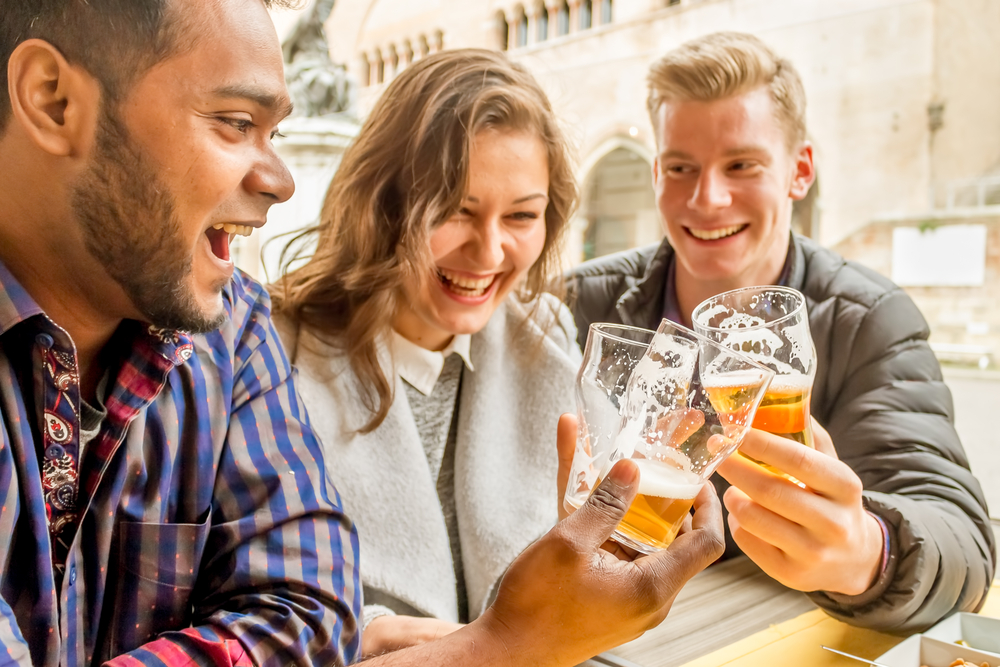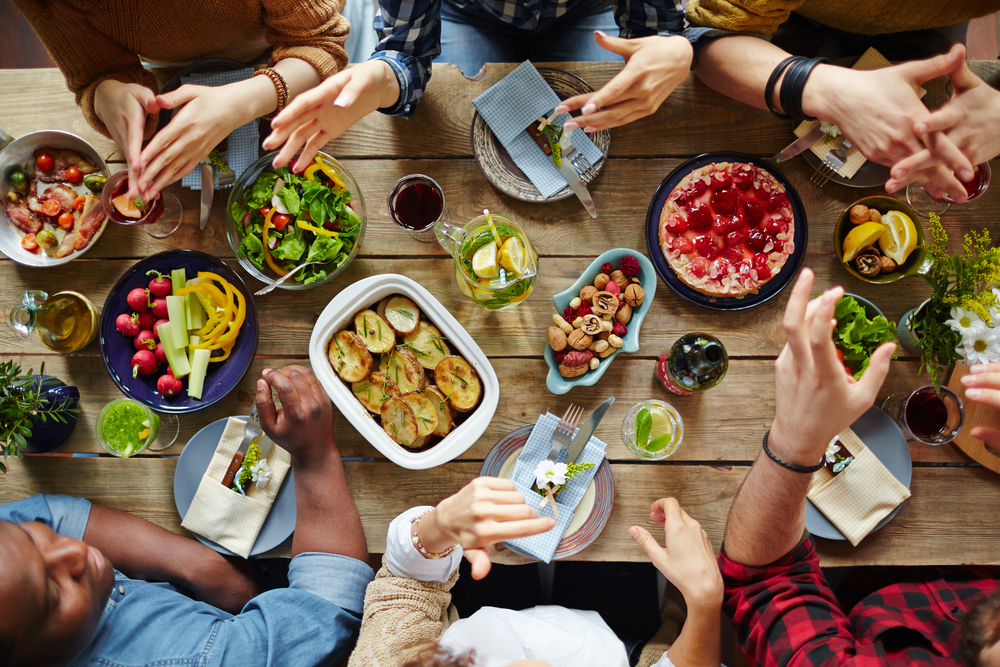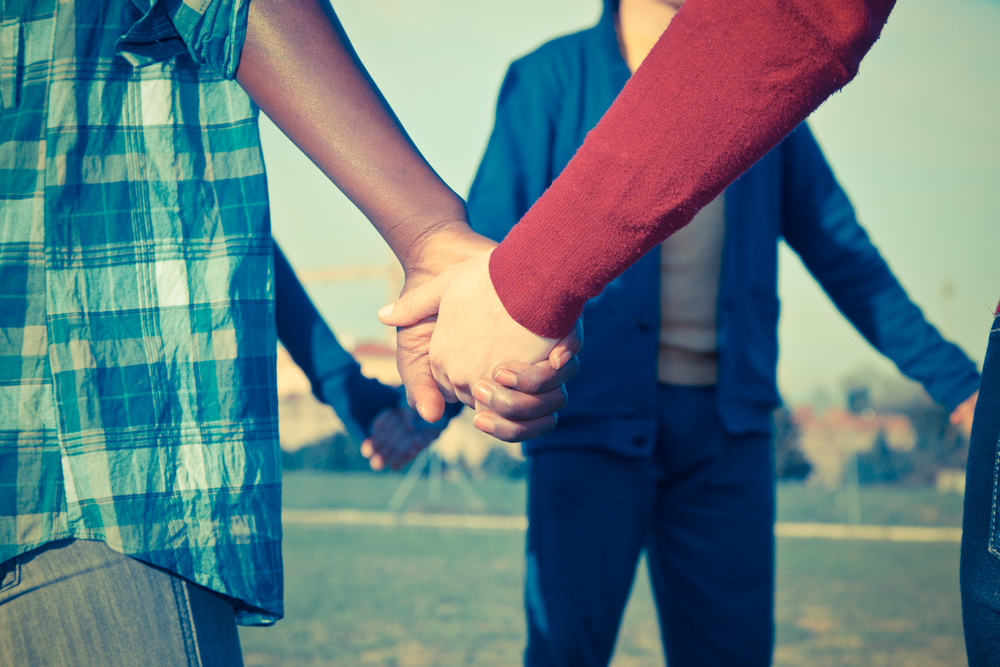Travelers tend to fall into the latter category, and there is much discussion as hearts turn towards home this time of year, about “what to do” about the holidays and how to cope with being far away.
The heart of this struggle is not really about the holiday that a person is missing though. It’s actually about community. When we take off on a journey, we leave our community of family and loved ones at home. We choose to separate ourselves, for a time, from our support groups, our daily face to face interactions with the people who matter most to us, and to stretch ourselves by going it alone for a while.
There is an assumption made by those who stay home, and also by many travelers, that community is one of the things that is lacking on the road, that it’s something we’ll just have to do without for the duration of our journey, like our favourite brand of soap and a closet full of shoes.
Living in community and building community are matters of one’s focus and mindset moreso than a physical location. For me, creating community is one of my core values, and as such, it’s something that I do and seek, no matter where I find myself. It’s something that people notice about us right away, too, that we are always up to our eyeballs in community, no matter where we are or how long we’ve been there.

Talk to Strangers
I have long believed that the most detrimental thing parents tell their children is, “Don’t talk to strangers!” In addition to instilling an unwarranted fear (statistics do not bear up the notion that strangers are more dangerous than friends or family), it cripples children socially. In my experience, some of the best people are strangers, and a great number of my dearest and best are people I found standing at a bus stop looking at a map, or sitting alone in a cafe, or in the hostel bunk next to mine.
I ask variations on three basic questions:
- Who are you?
- Where are you from?
- What are you passionate about?
Those three questions open up the beginning of community in sharing basic identity, story, and life motivation. Sometimes people will tell you things that surprise you both!

Break Bread
I grew up in a family where dinner guests were ubiquitous, whether we were around my mother’s big dining room table with extra chairs squeezed on either end, or on a picnic blanket on a beach in Mexico, or living in our van crossing the continent with a couple of hitchhikers tucked in around the margins for a couple of days of the journey.
Eating a meal together has always been a building block of community across cultures. As you travel, it is one of the very best ways to bridge cultural gaps and get to know locals and other travelers alike. It doesn’t have to be a meal you cook yourself. It’s okay to ask everyone to bring their own plate and spoon. It doesn’t need to be fancy or costly. Having people to dinner isn’t about putting on a big production, it’s about sharing life. One of the most useful pieces of community building wisdom that was passed to me years ago was having the difference between “entertaining” and “sharing” pointed out. Once or twice a year, we’ll put on a big fancy dinner and “entertain” the people in our community, but the “sharing” is something that happens daily, without frills and with a heaping spoonful of real life.
I invite people to dinner every single day, and we have guests around our dinner table at least three nights a week, not counting regular drop ins who quickly come to know that our house is a place to be if they want fresh bread or they need to feel welcome. It’s easy enough to do, just tack one more question on to your “talking to strangers” list:
“Would you like to have dinner?”
Then, have it.
Just for fun, here’s a sampling of dinner companions I’ve known and loved:
- Israeli fighter pilots
- Irish musicians
- A passionate artist and aid worker
- A psychologist who looked like he belonged to Hell’s Angels
- Mennonite backpackers
- Drug dealers
- A broken hearted contractor
- A wandering jew
- A nymphomaniac
- Circus performers
- An honest to god Knight
- A rocket scientist
- Missionaries
- An inventor
- And an endless parade of hungry young people who are happy for a home cooked meal

Disconnect
Let me open by saying that I am not anti-technology. I love the internet for the ability it gives me to live and work anywhere I choose, and for the ease of maintaining relationships in the many communities that I participate in around the world. However, if you’re seeking to build community in the real world, face to face, it requires a certain amount of disconnectedness and balance between the virtual and the physical worlds. It will be harder to meet people if your face is constantly in your phone. If your laptop is open in a cafe, that’s a barrier between you and me. I’m unlikely to sit down, ask my three questions, and invite you to dinner, because you appear to be otherwise engaged.
Put your phone away. Close the lid of your lap top. Take a walk. Sit in a cafe and do nothing. Smile at people. Ask questions. Conversation will ensue. Community will be built.

Remain Connected
And here in lies the paradox: We must disconnect to build community in the real world, but being connected is a wonderful way to maintain relationships and communities. I’m a huge fan of social media for the people that it allows me to touch every single day who aren’t on the same continent I am.
We belong to several online groups of travelers who arrange meet ups and group adventures through the web. And we joined numerous local groups as we travel that have helped us get connected to events and activities as well as individuals as we travel. The internet is a powerful tool for moving community forward.

Create Family
The best families are those that are built, not born. If you’re very lucky to be born into a group of humans that also understands how to build family, then you are blessed indeed. Birth, however, need not determine the extent of your family. Chosen family is an important concept in my world. There are people who I’ve met as a result of my travels who are as braided into my heart as the people I share blood with. Many travelers can relate to this: relationships are formed by shared experience, and adversity on the road become life long bonds that stretch across continents.
Of course there are a dozen answers to that, but my knee jerk reaction was this: “Invite strangers. Create family.”
That’s exactly what we’ve always done. It’s what my parents did when we were traveling as kids and found ourselves celebrating Christmas on a beach in Mexico.
Thanksgiving this year found me feeding ten extra people. One Christmas we had a dozen backpacking kids camping on our living room floor and “Santa” stuffed stockings for every single one of them. We’ve had Halloween parties in Thailand, Easter egg hunts in Wellington’s botanical garden in New Zealand, celebrated Canada Day with fireworks in Pai (and drew the attention of local law enforcement!) We once hosted a birthday party for my husband that shut down every restaurant in our small town because every single person came. The police broke up the party when we broke curfew!
How do you build community as you travel?
Read more about building community while traveling:
Want more from BootsnAll in your inbox? Sign up for our newsletter(s)